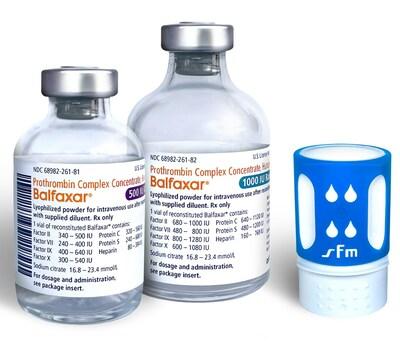Balfaxar Interactions
There are 12 drugs known to interact with Balfaxar (prothrombin complex), along with 3 disease interactions. Of the total drug interactions, 6 are major, and 6 are moderate.
- View Balfaxar disease interactions (3)
Medications known to interact with Balfaxar
Note: Showing generic names only.
Balfaxar disease interactions
There are 3 disease interactions with Balfaxar (prothrombin complex) which include:
- disseminated intravascular coagulation
- heparin-induced thrombocytopenia
- thromboembolic complications
More about Balfaxar (prothrombin complex)
- Balfaxar consumer information
- Compare alternatives
- Pricing & coupons
- Drug images
- Side effects
- Dosage information
- During pregnancy
- FDA approval history
- Drug class: anticoagulant reversal agents
Related treatment guides
Drug Interaction Classification
| Highly clinically significant. Avoid combinations; the risk of the interaction outweighs the benefit. | |
| Moderately clinically significant. Usually avoid combinations; use it only under special circumstances. | |
| Minimally clinically significant. Minimize risk; assess risk and consider an alternative drug, take steps to circumvent the interaction risk and/or institute a monitoring plan. | |
| No interaction information available. |
See also:
Further information
Always consult your healthcare provider to ensure the information displayed on this page applies to your personal circumstances.


